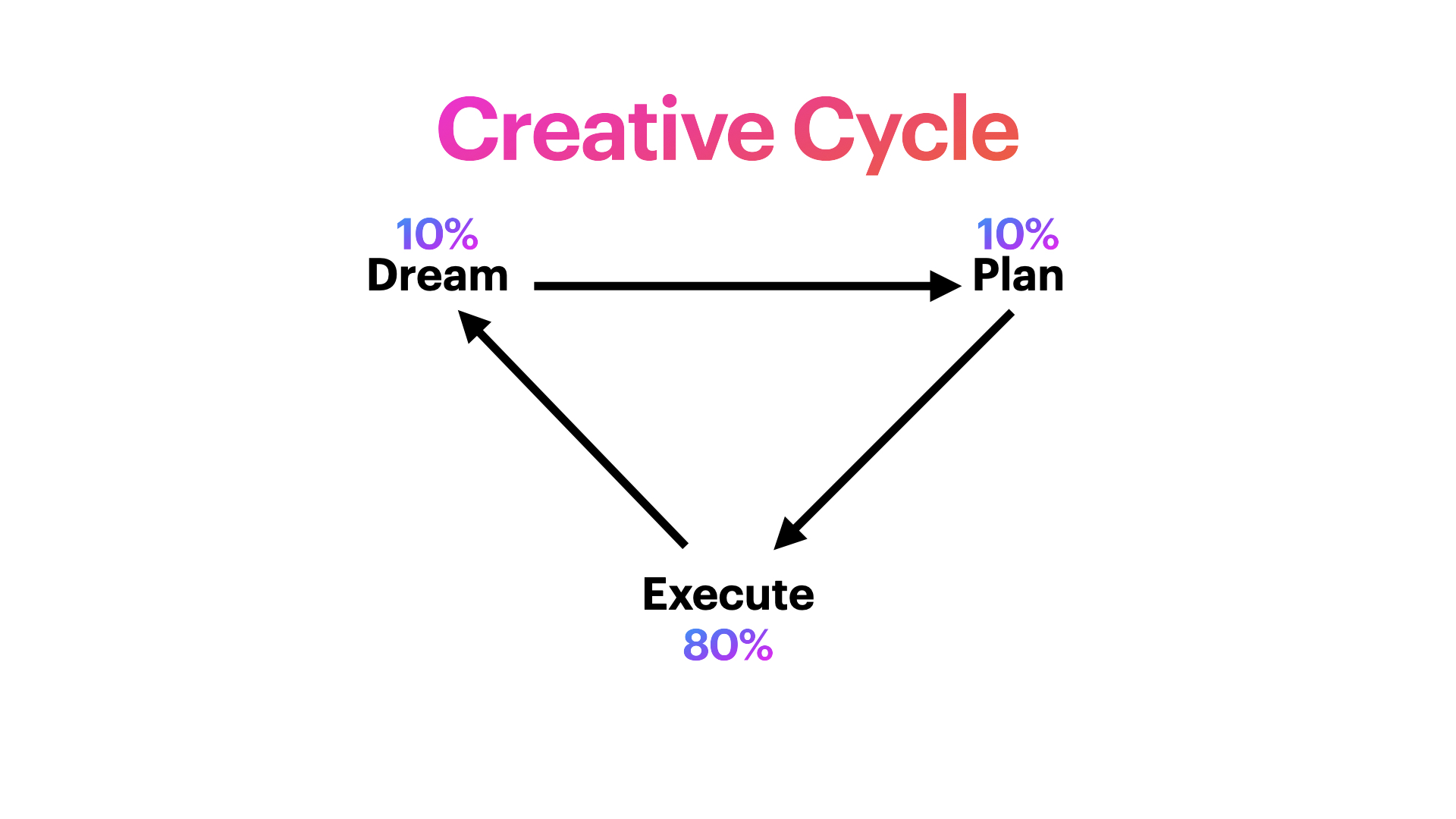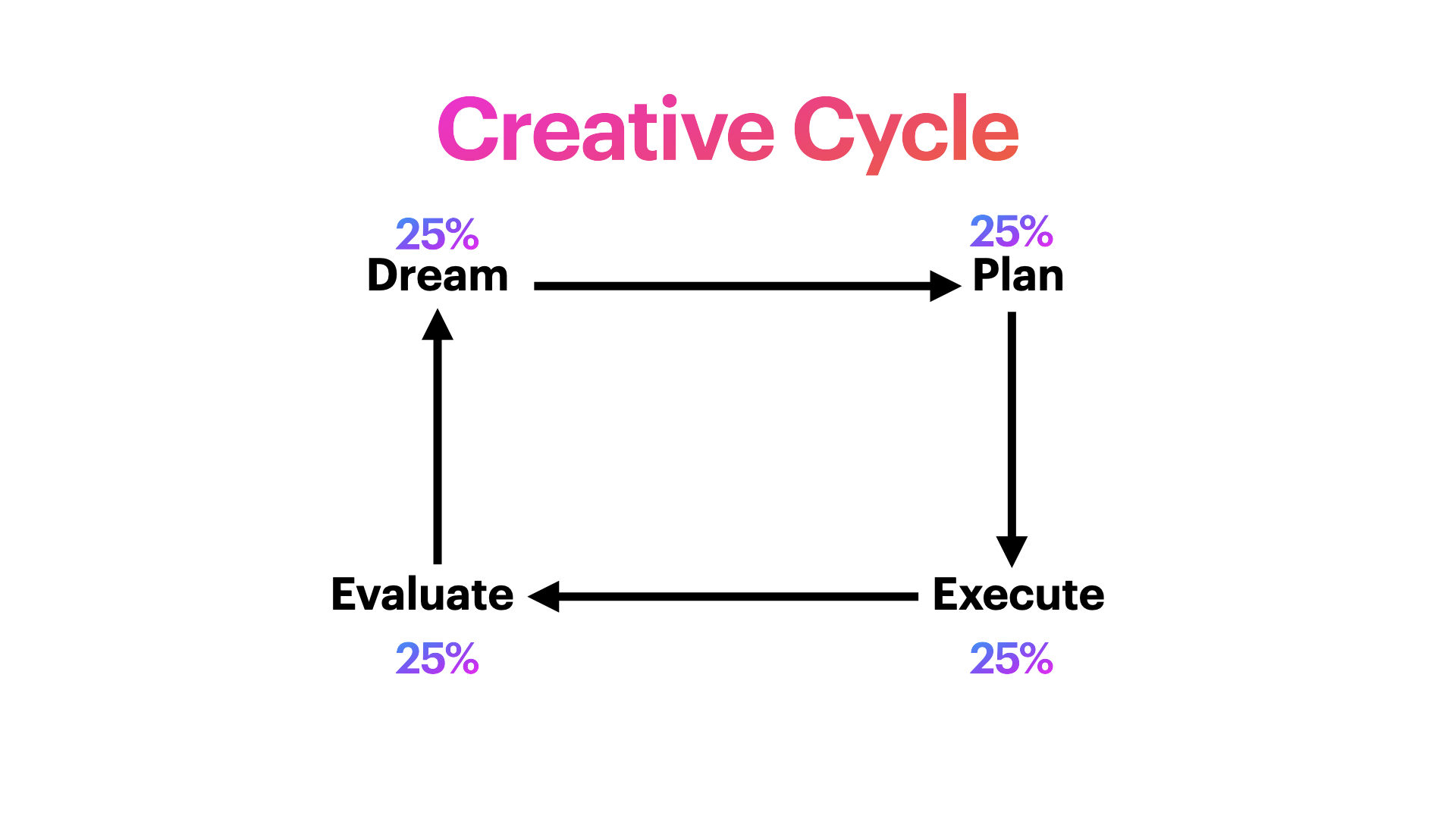Darrel Girardier joined us for our first-ever Road to SALT webinar to share how his team learned to evaluate their major Sundays. He’s sharing his expertise so that your team can benefit to know what ideas worked and which ones need to be scrapped for future Sunday events.
Evaluation is not a dirty word. Nor is it as scary as we tend to make it out to be. Using evaluation after your biggest Sundays can drastically improve your creative experiences as well as team communication. It will help you go from a “Sunday’s always coming” mindset to a “we’re ready for Sunday” mentality.
How do you make this shift? Let’s start by looking at one bad habit that can be changed. Have you ever heard of the O.O.D.A. loop? It’s a United States Air Force acronym: Observe. Orient. Decide. Act.
The best pilots are the ones who can do it rapidly. Oftentimes, it happens in the church, too. Churches love O.O.D.A. loops. We get “attaboys” and accolades for knocking projects out quickly. Repeatedly doing the same thing at a faster pace. But it breaks down the healthy creative cycle.
The Creative Cycle


- Dream
- Plan
- Execute
Ideally, they would each take about 33% effort. Realistically, it’s more like 10%, 10%, then 80%. When you focus on speed over quality, more effort is put into execution than any other part of the process.
Darrel Girardier was following this model with his church until he realized they were missing a vital fourth step: Evaluation.
We know that after a big holiday or big series… Sunday always comes. Again. We have to immediately prepare for the next Sunday and we only have 7 days to do that. When we do take time to reflect, we tend to be subjective more than objective. We evaluate from an emotional standpoint and just run headlong into the next project. The next Sunday. This leads to burnout and team members explaining away the things that occurred. We create excuses to explain why things didn’t work instead of solutions to make sure they work next time.
How to Evaluate
Within a few days after your big Sunday, sit down with your team and ask these two questions:
- What did we expect to happen?
- What actually happened?
Darrel also recommends sharing a NPS survey – that’s a Net Promotor Score. These are surveys used to show how much a team member actually liked your product/experience/Sunday service.
- How likely would you recommend this to a friend?
- On a scale of 1 – 10
- What would it take to go from an 8 to a 10?
The answers you get from your team on these two main questions and on the NPS surveys will tell you a great deal about how the experience was taken and how proud your team feels about their work. Use this feedback to move forward with purpose and clarity.


Action Steps
Within 48 hours of your evaluation, take these action steps:
- Map out your production calendar
- ex: Evaluate Easter then map Christmas
- Execute any single task items
- These are things that you can do immediately to make things easier or done the right way.
Examples: Your evaluation showed that communication came from too many mediums: texts, phone calls, Slack, project management tool, and “drive-bys.” Immediately identify what medium will be used for future communication and hold the team accountable to it.
Example: Evaluation showed that people were making decisions in ‘silos’ or not everyone understood what was happening. You can immediately implement Monday meetings where everyone takes a few minutes to share their ‘homework’ – aka their current project and progress. This keeps the team on the same page and up to date on where each team member is at in the process.
Note: Your team might feel a little beat up, especially if they’re a younger group. Focusing on these action items will help your team look at it objectively vs taking the criticism personally.

Audience Q&A
Q: Darrel, how have you seen change since evaluating your big Sundays?
A: We slow down. We renegotiate the parameters of what we need every Sunday. Allows us to provide quality work vs “flash & trash” videos to fill time.
Q: How do you help a leader say, “Here’s our first step for Sunday?”
A: How do you view your work? Artwork is for the fridge. Design work is to solve a problem. If you can identify the problem, say engagement, you can choose which medium best addresses it.
Q: How do you evaluate Sunday to Sunday?
A: We’ll still run through the 2 main questions in each Monday meeting, but a little more micro and faster turnaround. Bigger Sundays will include the NPS survey to the team. We also have weekly team meetings on Monday and Thursday before the big service. Those help us catch mistakes ahead of time.
Q: What project management tool do you use?
A: Darrel’s team uses Click Up. The SALT team uses Asana.
Q: Any advice for smaller church staff when you wear a lot of hats?
A: Ask your volunteers to offer feedback. They are your internal team too. As well as your pastors. Give them permission to say “the baby is ugly.”
Q: What if my pastor thinks everything is great but the team doesn’t love it?
A: Imagine every day you’re given a PB&J to eat. Then, one day, someone gives you a steak for lunch. Oftentimes, creatives know they can serve up steak, but ministries are happy with PB&J, because they don’t understand how good steak is. You have to lower output quantity to get to the quality level you need.
Q: How do you get team members to stop falling back on excuses?
A: Communicate that you care, but there are consequences. “Hold their feet to the fire.” Darrel builds in checkpoints for each team member as well as clear consequences if they don’t meet them.
Q: What if a team member doesn’t want to evaluate.
A: Set up expectations from the beginning. Spend time coaching and pouring into them so they also know their value isn’t just their work. Remember that you’re married to the church brand, but everything else is only a dating relationship.
Q: Bob Iger said to the Disney board in his last meeting: “Let’s not let our brand become a data-based company.” What do you say to that when the church needs both?
A: Metrics are great for the initial measurement of what works. Use them, read them, but don’t base everything on them. They can’t tell you if you have a good story. Metrics will often lead to you showing your audience the same thing.

